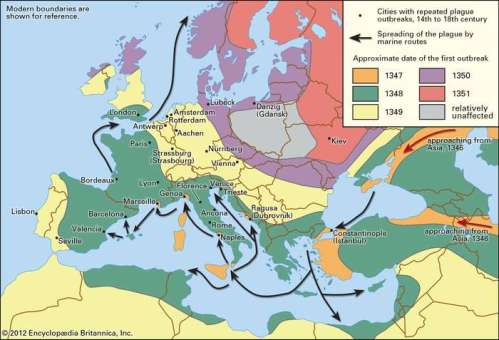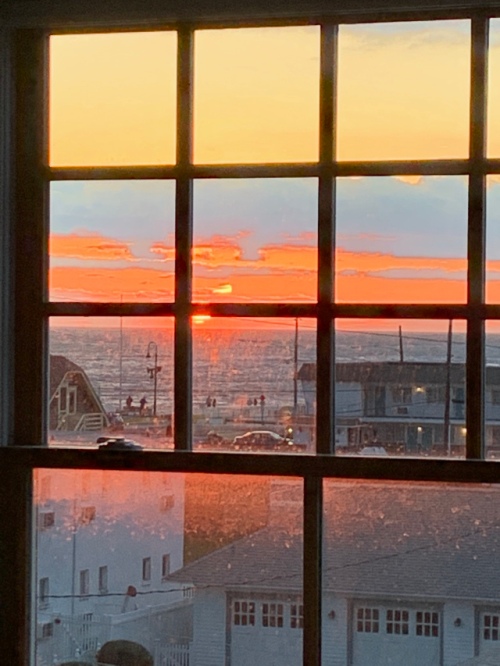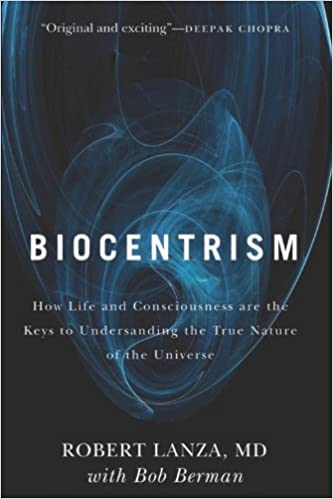The generation born between 1930 and 1960 had no choice but to listen to father‘s law and do as we were told.
Father’s will is Law!
When we asked
Why?
We got a very short but very well to understand answer.
Therefore!
Now those generations from before the 1960s have become the “oldies”.
We live with the thought that we taught some good and interesting things to our kids, but sometimes seem to wonder what they did with what we taught them and what went wrong with the present generation.
What did we do wrong?
For sure, though we did not always agree with our parents, and dared to go on the streets in 1968 to question our way of living and our society, we always still showed respect for our parents and grandparents. In many cases, there were no great-grandparents. Our grandparents, to us, looked already
so old
at an age that we now already survived a few years.
Unlike our parents, we taught our children to dare to question everything and not just accept or consider everything.
At home and at school we learned courtesy rules. But what is left of it? Some of the things we learned, such as keeping the door open for ladies, are not always anymore appreciated but are viewed as a sexist attitude.
Humphrys writes
If I’ve taught them anything at all – pretty unlikely I know – it’s that healthy scepticism beats the pants off reverence. Always has. Always will.
And yet… maybe just the teeniest smattering of respect might not come amiss? Possibly not boys doffing their caps to ladies in the street as my school ordered us do. After all, who wears caps nowadays? (And is ‘ladies’ sexist? What if they’re trans?)
But perhaps an acknowledgement that we oldies just might have picked up some useful stuff during our decades of experience on this planet that could come in useful? That’s tricky in today’s climate. Just that word “experience” is fraught. It has to be a “lived” experience now and I’m not sure I know what that is.
We have also been brought up to check the past and present and to seek the truth each time.
Our parents taught us that if we did not know something, we should go and look it up in the encyclopaedias provided. Those writers were expected to have undergone sufficient schooling and presented well-founded articles under editorial authority to inform the reader and provide further knowledge. We found it great to find such reference works that contained information on all branches of knowledge or that treated a particular branch of knowledge in a comprehensive manner.
For more than 2,000 years encyclopaedias have existed as summaries of extant scholarship in forms comprehensible to their readers. But in the last two decades, we saw several well-known encyclopaedias disappearing from the market.
At our house, the 1968 Encyclopaedia Britannica, as the oldest English-language general encyclopaedia, was just one of the many other encyclopaedias we could use daily.
The researchers and authors and publishers of encyclopaedias had to face technological changes, beginning in the 1980s with the development and spread of personal computers. It really became a world that opened up, making it possible to look up documents from all over the world. The computer business evolved so fast, quickening in the 1990s and 2000s through the Internet and widespread diffusion of broadband access, it radically altered the publishing world generally and the encyclopaedia business in particular.
The 15th edition of Encyclopædia Britannica (1974), was designed in large part to enhance the role of an encyclopaedia in education and understanding without detracting from its role as a reference book. It represented very much the way we were brought up, finding it necessary to educate and to spread knowledge. Its three parts (Propædia, or Outline of Knowledge; Micropædia, or Ready Reference and Index; and Macropædia, or Knowledge in Depth) represented an effort to design an entire set on the understanding that there is a circle of learning and that an encyclopaedia’s short informational articles on the details of matter within that circle as well as its long articles on general topics must all be planned and prepared in such a way as to reflect their relation to one another and to the whole of knowledge.
For those who wanted to learn more or wished to delve deeper into a particular fact or topic, the Propædia became a great help for self-study. The propaedia was a reader’s version of the circle of learning on which the set had been based and was organised in such a way that a reader might reassemble in meaningful ways material that the accident of alphabetisation had dispersed.
In 1981, under an agreement with Mead Data Central, the first digital version of the Encyclopædia Britannica was created for the LexisNexis service. In the early 1990s Britannica was made available for electronic delivery on a number of CD-ROM-based products, including the Britannica Electronic Index and the Britannica CD (providing text and a dictionary, along with proprietary retrieval software, on a single disc). A two-disc CD was released in 1995, featuring illustrations and photos; multimedia, including videos, animations, and audio, was added in 1997.
seems to find it a waste of money that his parents scrimped to pay a weekly shilling to the Encyclopaedia Britannica door-to-door salesman so that they as kids would always have the world’s knowledge at their fingertips.
He gives the impression that those modern machines and the evolution of artificial intelligence is one of the many reasons why respect between the generations matters.
We do admit that many young people do not understand how the elderly can or cannot handle today’s modern gadgets.
Millennials (born 1981-1996) tend to put the boomers (born post-war) into a category. Specifically, men. Usually “old white men”.
How come that usage is tolerated? Substitute “women” for men and it wouldn’t be. It would be sexist. Substitute “black” for white and it would be racist.
He observes
Those who once wore the badge of old age with a certain pride must now carefully guard their tongues less they cause offence, even when it’s patently obvious that none was intended. Was it necessary to humiliate Lady Susan Hussey when she was seemingly too curious about the origins of a black woman who was wearing a vivid tribal dress? Her offence, it turned out, was being old.
Getting old happens to all of us. How we deal with it is very different. But it is also very different from how outsiders deal with elders.
Especially in recent years, there has been an unpleasant skew there, with many viewing elders as a burden.
Similarly, few can empathise with the world of understanding of those elders who have been brought up with certain ways of thinking, some of which are also sometimes difficult to distance themselves from or continue to think stereotypically.
We all pursue dreams and shall one day be confronted with that older body, becoming aware that there is not only a tendency to forget people’s names, but having more than once looking for the right words, having forgotten (for a moment) certain things. And then in confrontation with the youngsters, they not always understand or want to give some time to get the memory back.
For some elderly it is also not evident to have to rely on others. And the children are not so pleased anymore to be a safety net for their parents, as we looked after our parents when they were already starting to reach a reasonable age. Some may be annoyued that those above 65 do not want to retire. It might be those in their 60s whose mind is fooling them in which case they will rely on others around them to let them know that it is time to retire.
How many times do those who passed the 50s have to hear from the youngsters that their ideas are old fashioned or that they are not anymore from these times? Many younger people find it not appropriate that the elderly are still pursuing ideas and aspirations. Is it a form of respect to accepting that they express their feelings as well as their dreams and aspirations?
Most young people don’t sense time as being a high-speed train, because for them it often looks ages, before there is another hour, another day. That makes them also to express their impatience so often. But then again, the fact that some elders become a bit too slow bothers those younger ones, in that it seems that that time is taken up by that elder, who then keeps them from renewing moments. Some younger ones do not mind letting the older ones know that it is time to retreat, or to get silent.
At a certain age, it can be that we feel that there has come a time we need to withdraw from the hurly-burly of the life we once knew. But it does not always feel so nice, when those younger people say it in our face. (We never would have dared to say such a thing to our elderly.)
In his book, The War On The Old, English literature professor John Sutherland wrote about what he called a culture of “democratic cleansing… a state-condoned campaign against the nation’s old”.
He describes an overwhelming sense of blame that younger generations attribute to “the wrinklies” who voted for Brexit, comfortable in the mansions they bought for a pittance. The once-dignified badge of seniority is becoming synonymous with “narrow-minded”, “outdated” and “incipiently senile”.
The elderly are bed-blockers, job-blockers, pension-drainers. {We used to respect our elders – whatever happened to that? by }
Normally, one went from one generation to the next with improvements, but today that no longer holds true. Today’s 30-year-olds have it much harder than their parents did. The age-old argument over which generation has had more advantages has been settled – at least where finances are concerned.
Adult life is harder to afford now than it was 30 years ago and it has forced today’s young to delay big life events, which tend to happen around this milestone age. Today’s generation are buying their first home two years later, having children three years later and getting married six to seven years later than they were in 1992. {Six reasons why boomers have it better than millennials by }
Due to the pressures of the outside world, those in their twenties and thirties may have become a bit “shorter” in their statements, and it is not always easy for them to be patient with those older people who are, as it were, still watching them or ready with criticism.
Dependence on two earners can make taking time off to care for children trickier, and to care for older people, even more, trickier or not so wanted. So it should not always be viewed so negatively by the elderly when those young people now show a little less time than their parents who could make more time for their parents and grandparents.
Many today are so engrossed in their work and the expectations of fellow peers that they have little time left outside their work sphere for their own spiritual formation, religious pursuits and many family activities outside their own families.
It can well be that certain actions and reactions of youngsters are sometimes unjustly interpreted as respectless, or not showing enough respect. It must not be disrespectful, but just because of these other times with much more pressure on the youngsters, that the gap between young and old has widened somewhat today compared to previous decades.
+
Preceding
A more recent discrimination: Old Age
Thought on the birthday of an encyclopaedia
Available information for the youngsters and readers of my websites
Islamic Emirate of Afghanistan back with a bang
Mishmash of a legal code but importance of mitzvah or commandments
++
Additional reading
- Ageing and Solidarity between generations
- Who is considered Old
- Man in picture, seen from the other planets
- Subcutaneous power for humanity 1 1940-1960 Influenced by horrors of the century
- Justififiable anger or just anarchism
- A trillion words
- Looking at an era of international “youth culture”
- Did the picture change for Working dads
- Living in this world and viewing it
- Hippies, a president, a damaged ozone layer and knights
- This Week Twenty-Five Years Ago: The Velvet Revolution Succeeds, December 1989
- Our brothers in Kyiv’s northwest suburb Irpin
- Russia not wanting it neighbours countries to cooperate with the West
- Left behind for economical emigration
- 2014 Social contacts
- 2014 Human Rights
- Time to consider how to care for our common home
- Welfare state and Poverty in Flanders #7 Education
- Martin Luther King’s Dream Today
- This fighting world, Zionism and Israel #5
- Another Jewish Voice on Trump’s plan: No peace without equality and mutual respect
- The truest greatness lies in being kind
- Agape, a love to share with others from the Fruit of the Spirit
- Approachers of ideas around gods, philosophers and theologians
- Cleanliness and worrying or not about purity
- Today’s thought “Teachers will be judged with greater strictness than others” (December 09)
- Perspectives
- Hungarian undermining of European freedoms
+++
Related
- A reflective Morning
- Time Hobbles On
- Beautiful, she said
- I am old.
- Learning to be Old–5
- The effects of just being you… Age.
- When You Grow Old
- The Age Old Question…
- Ageism in the workplace
- Life is Short
- Pursuing dreams to stay young in mind
- What We Need, in Order to, Age Gracefully
- I Can’t Breath Through It All
- Thirty Five Years and Old.
- How to be Old
- 75 And Counting
- Age 90+
- Stillness
- Dealing with Age Discrimination: Workers’ rights and strategies
- “The best gift you can give your children, is the love and respect you demonstrate for their mother.”
- Respect for life…
- … the taste of respect
- life will teach you to honor and respect balance.
- I do respect people’s faith
- High recognitions . . . Honor and respect them, though you no longer worship them
- Paris attacks darkning the world
- Holidays break – Day 7






















 , and (2) those of a prohibitory character, the
, and (2) those of a prohibitory character, the  . This terminology rests on the theological construction that God’s will is the source of and authority for every moral and religious duty. Many of the old laws were given to and concerned only special classes of people, such as kings or priesthood, Levites or
. This terminology rests on the theological construction that God’s will is the source of and authority for every moral and religious duty. Many of the old laws were given to and concerned only special classes of people, such as kings or priesthood, Levites or 


























































